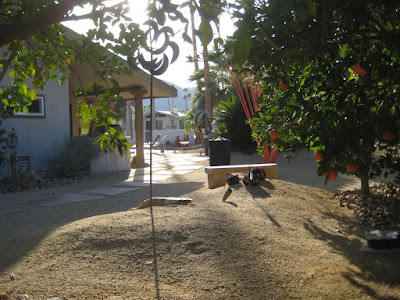I have a long and curious history with Wabasha, Minnesota. I don’t have
roots there but I saw what it did for my wife, Sharon, in terms of solid,
grounded values and a wholesome attitude toward life. Hers was and is an
intellectual curiosity that went far beyond the classroom and school yard
negotiations. It steeled her for life’s ups and down and a burning desire for
more. Not bad for a one-horse town, few folks had ever heard about, down the old
Mississippi from Saint Paul.
Almost 55 years ago, I met this girl in Saint Paul who was from
Wabasha. For the following many decades, we ventured down old Highway 61, one
hundred plus miles, to visit her parents and eventually introduce our kids to
life on the farm. It was great while it lasted.
Eventually Sharon’s parents retired, leaving their one-hundred-year-old
farmhouse and began a new life as ‘townies.’ Wabasha was growing old as they
were and seemed destined for the gradual decline that has accompanied the many
river town along the Mississippi. Then some strange things started to happen.
For years, small manufacturing plants had come and gone around Wabasha.
Their life expectancy seemed to depend on attracting enough workers at
competitive wages, the sometimes-foreign markets and capitalization. Then
computer technology and the internet began to make inroads into what had been
for centuries just centralized job sites.
Back in the early 80’s, I heard rumors about a group of hippies living
in the hills around the town of Red Wing who were working for a new venture
called Apple Computer. They were writing code for the company and enjoying
their rural existence. Sounded fascinating to me.
Unfortunately, when I voiced my interest in such a venture to my
father-in-law, he informed me that perhaps Red Wing would do such a thing but
it wouldn’t be for Wabasha. His home town had been a grain-milling town for as
long as he could remember and would always carry that moniker in his head. Old
Delbert didn’t share my vision of entrepreneurship in small towns and I let it
go as a chasm between generations too wide to cross. It was never talked about
again.
Then a newly formed Wabasha arts group called the Wabasha Arts Council
began a series of concerts called ‘Music Under the Bridge.’ One of their first
groups was a folkie duo called the Floorbirds. I was smitten with the idea of a
concert series in downtown Wabasha. I saw it as a sign of good things to come.
Sharon’s mom dismissed it as ‘hillbilly music’ and wasn’t interested. A
generational thing again, I’m sure. But the new ideas kept coming. The next one
arrived on a six foot wing span.
It sounded like a crazy idea at first. A group of interested
individuals met with the city fathers. “Let’s build a center”, they began, “where
we can display some Eagles, explain the ecological and biological importance of
these magnificent birds and perhaps draw a couple of tourists to town as a side
benefit.” The City Council loved the idea and The National Eagle Center was
born.
The city came together to plan a permanent waterfront museum in the
early 2000s. A 14,200 square foot was designed that now attracts approximately
80,000 tourists and researchers to Wabasha every year.
Shortly, afterwards, new restaurants began to spout up, drawn by the
tourist traffic that was extending beyond weekend and spilling over into the
weekdays. The County began promoting the many outdoor recreational attractions
for the whole of the Hiawatha Valley, extending from Red Wing, through Wabasha,
all the way down to Winona. Entrepreneurial businesses soon followed and
Wabasha became a ‘happening’ place.
More recently, a new venture called GrandPad is making its mark in the
community and on-line. GrandPad describes its mission as making it easier for
seniors to connect with family, friends, and caregivers. The company has
developed its own tablet and launched a subscription service to support it. All
of their live, around-the-clock customer service reps come from folks who live
in small towns like Wabasha.
GrandPad says it has connected more than 1.7 million people in 120
countries. The company employs 165 and, to date, has raised $31million to scale
its technology, both hardware and software. All of that centered in Sharon’s
old home town
I’ve watched Wabasha’s evolution over the decades just as my life
evolved and changed along the way. Sharon and I have talked about returning
there next summer for a visit to some of the ‘old places.’ Until then, we wish
the old proving grounds well in the years to come. Something new, something
old, I guess, just like us.





















































